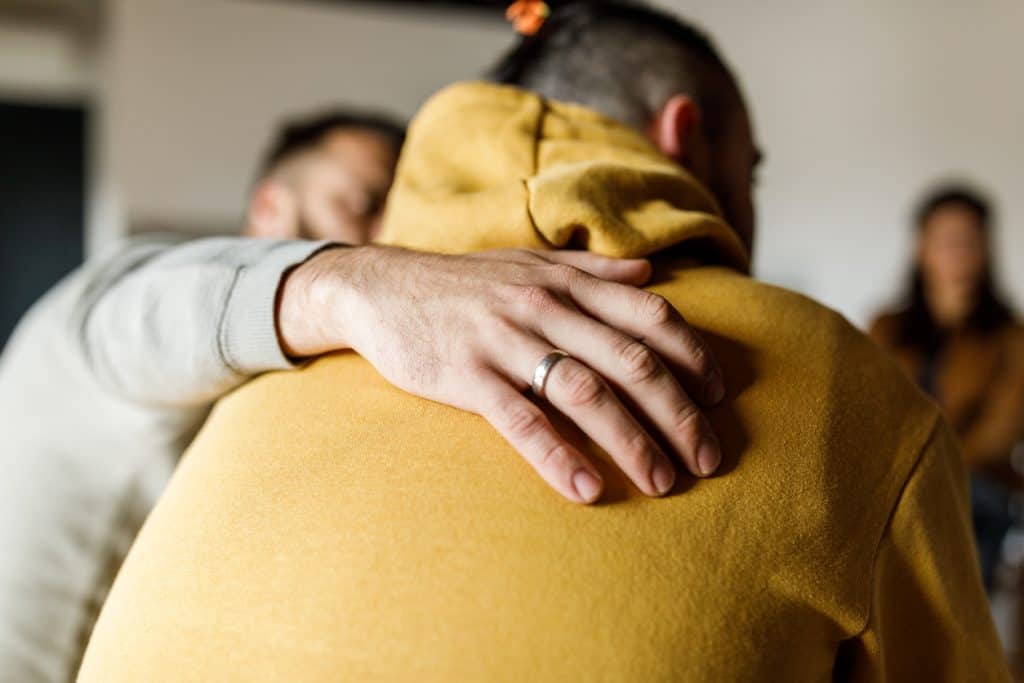One of the things therapists love to talk about is feelings. That’s why the stereotype of a psychologist is a bespectacled man in a turtleneck, leaning back in his leather chair with his notepad in hand, asking, “How does that make you feel?”
There’s a good reason for this, though. We human beings are not machines. We are not robots, coldly analyzing data and making decisions according to some predetermined program.
As much as we like to think of ourselves as rational, the truth is that our emotions make up a tremendous amount of how we experience the world. Many of our decisions, too, are informed by our emotions. We avoid a certain person because they irritate us, while we seek out another person because we feel happy in their company. There are many other examples, but the point is, we make frequently choices based on how we feel about things.
Sometimes making decisions on emotion alone can get us into trouble, but emotions aren’t intrinsically bad. They are signals informing us about the world outside ourselves and how we are subjectively experiencing it.
Feelings of joy, grief, anger, love, and many other emotions add color and depth to the raw facts of existence. Without emotions, we simply wouldn’t be human.
Emotions and Porn
What do our emotions have to do with overcoming porn? A great deal.
Let’s say your parents divorced when you were twelve—a common experience for many millennials. At the time, this left you with feelings of loneliness, anxiety, and abandonment. Let’s also say around the same age, you discovered porn, and it helped you feel better, a lot better. It felt like a pleasurable and distracting escape from an otherwise tumultuous world.
Years later, you find yourself in a hotel room on a business trip. Your marriage is strained, and you recently argued with your wife. Seemingly out of nowhere, you are flooded with feelings of loneliness and abandonment. And before long, you turn to the one thing you know reliably makes your feel better: porn. After a lengthy binge, you come back to your senses and feel tremendous guilt and shame. How did this happen, you wonder.
While you may not be able to consciously make the association or give a name to these feelings, they are a reliving of the same feelings you experienced at twelve years old. The past is still present for you through your emotional life. A part of you is still frozen in that time when your childhood world came apart, and triggered my current experiences, it is responding in the only way it knows how.
I would make the bold claim that nearly everyone who compulsively uses porn is struggling with unresolved emotional wounds. No one rationally chooses porn based on the belief that it is good for them. Compulsive porn use comes from a place of emotional hurt. Whether the wound is large or small doesn’t matter. Behind every porn binge is an emotion asking us to please listen.
Our Emotions Matter
Often, we get frustrated with our feelings. They seem to get in the way of our goals, or keep us from living the way want. We dismiss them, belittle them, or try to suppress them. But the one thing we never do is listen to them.
As I said earlier, emotions are signals. Like nerves that cry out when you cut yourself, they have a message for us. They have a story to tell. Bottling up your emotions or going to war against them never helps. In fact, it often makes things worse.
A far better response is to get curious about emotions. What are they trying to convey to us about our experiences? The more we are compassionately curious about our feelings, the more they will begin to communicate with us about our deepest needs, our hidden hurts, and the defenses we’ve erected around them.
Getting In Touch With Your Emotions
How can we listen better to our emotions? One way is to focus on our bodily sensations.
While we can often think of them as disembodied psychological states, emotions are embodied experiences. Anxiety can feel like a tightness in the throat or chest, depression like a heavy weight on your shoulders, trauma like a twisting in your gut. Complete psychotherapies, like Somatic Experiencing, have developed to help heal emotional wounds by working with the body.
Call to mind a safe but strong emotional experience—maybe anger, joy, love, or anxiety—and focus on the sensations it conjures in your body. Where do you feel it? Pay close attention to the tension in your body and try to express in words what you experience. Focus on what that sensation might have to tell you about the underlying emotion it expresses. If you had to take a photo of it, what might it look like?
Then, take 10 deep breaths from the diaphragm and send your breath compassionately to that place of tension. See what happens.
Conclusion
Compulsive porn use is often driven by emotional wounds. While we may long to be free of our porn habit through sheer willpower, our emotions sometimes get in the way. Turning toward our emotions with curiosity and compassion, listening to what they have to say, is always better than turning against them with anger or frustration.
Get in touch with your emotions by paying attention to your body and the sensations that accompany emotional states. Then get curious and ponder what they may have to tell you. You may be surprised at what you learn. Healing from porn means healing both our bodies and our emotions. Mind, body, and soul all go hand in hand, and as we strive to live free from porn, we must care for all three.








Thanks for the heads up on dealing with our emotions and our physical reactions.